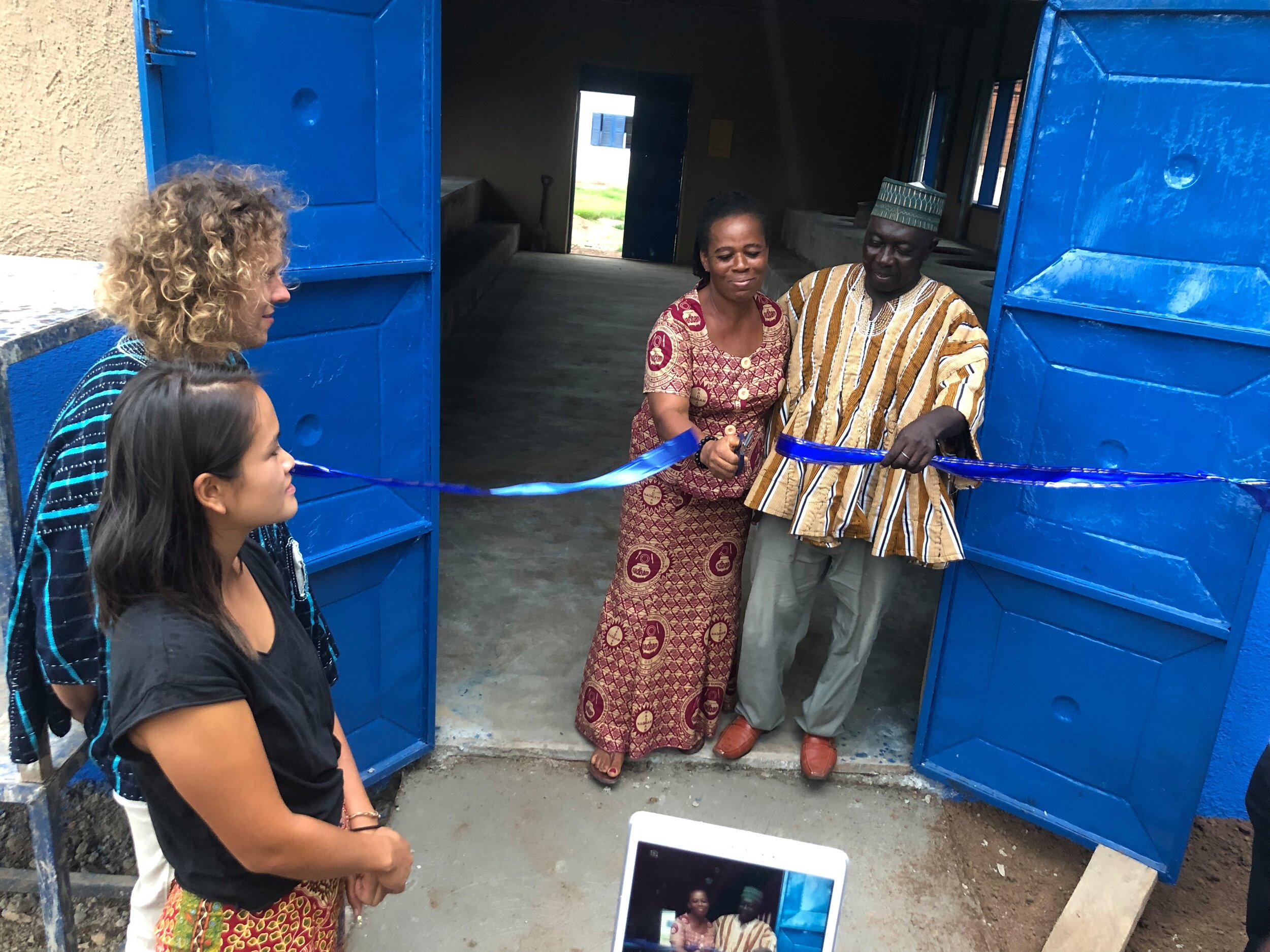Kitchen Facility with Rocket Stoves
At Wulugu Senior High School the food used to be prepared under adverse conditions; either outside over open fires on a three-stone solution or in-house in inefficient stoves. When cooking food this way, a lot of smoke is created, leading to severe health problems.
According to the World Health Organization, smoke-induced diseases are responsible for the death of 4.3 million people every year - more deaths than caused by malaria and tuberculosis - making it one of the most lethal environmental health risks in the world. It is essential to enhance the local awareness of the dangers with inhaling smoke. Preparation of food using these methods is not energy efficient and causes unnecessary deforestation.
Wulugu Senior High School - Ghana
The project of constructing a new kitchen at Wulugu Senior Highschool started at the beginning of November 2018. Research on the school's current situation was done before developing technical solutions and the stoves were adapted to fit the local context.
The construction of the new kitchen was done during the summer 2019. The kitchen consists of rocket stoves and a chimneys that leads the smoke away.
Education about deforestation and health issues from inhaling smoke were provided at the school by EWB-SWE volunteers. Education material, workshops and lessons were conducted raise awareness about these matters.
Wulugu is located in the northern parts of Ghana, 120 kilometres from the city of Tamale. About 2000 students are studying at the school, aged between 16-19 years old. With the new kitchen solution, teachers, workers and children at the school are able to continue their everyday life without inhaling any smoke that causes health problems.
Technical Specifications
Kitchen
The kitchen consist of 20 rocket stoves, replacing the old kitchen and all open fires outside. The rocket stoves are widely used around Africa and have been proven to be much more efficient than the three-stone solution that was used in Wulugu. Each stove has an opening for wood input, an entry for air intake and a chimney to lead the smoke away. The stove heats a metal plate that in turn heats big pots that are used for cooking. To increase the efficiency of the stoves, the construction isolates the heat, which also reduces the amount of wood needed. The kitchen has storage and changing room for the personnel. All parts and material are local, which will make it easy to maintain the kitchen when needed.
Research and local environment
The projects started at the beginning of November 2018. Research on the school's current situation was done before developing technical solutions and creating the education material. Volunteers arrived at the schools at the beginning of June and worked there for nine weeks.
To understand the situation at the schools, EWB was in contact with teachers and local non-governmental organizations. Researching different solutions for the kitchen was made, and after discussion with the local school and technical consultants in Sweden, it was decided to use rocket stoves. The stoves will be adapted to fit the local context with amount of stoves and size and shape of the current pots. The locals should also be able to use the stoves if the purchase of other pots in different shapes and sizes were to be made.
Technical Long-lasting Solution
When using the kitchen, it is essential that the smoke is lead away from all the people in the area and that the stoves are well isolated to increase the efficiency of wood used. The stoves consist of metal parts that can easily be repaired or replaced when necessary. No major maintenance will be needed, making it a sustainable and long-lasting solution.
Education
Due to the high death rate caused by people inhaling smoke every year, educational sessions about this issue and related health problems connected to inhaling smoke was provided. Part of the education also consisted of energy efficiency and issues caused by deforestation.
Education material and interactive workshops for both the teachers and the students about the relationship between contaminated water and diseases was held.
Local Involvement
To ensure long-term functionality of the kitchen, teachers and the local community were involved in the project. Local workers were hired during the installation and provided with a manual for future maintenance. EWB-SWE bought all material and equipment locally to ease access to spare parts and enable similar solutions to be implemented in the area. This way EWB also supports the local economy.






